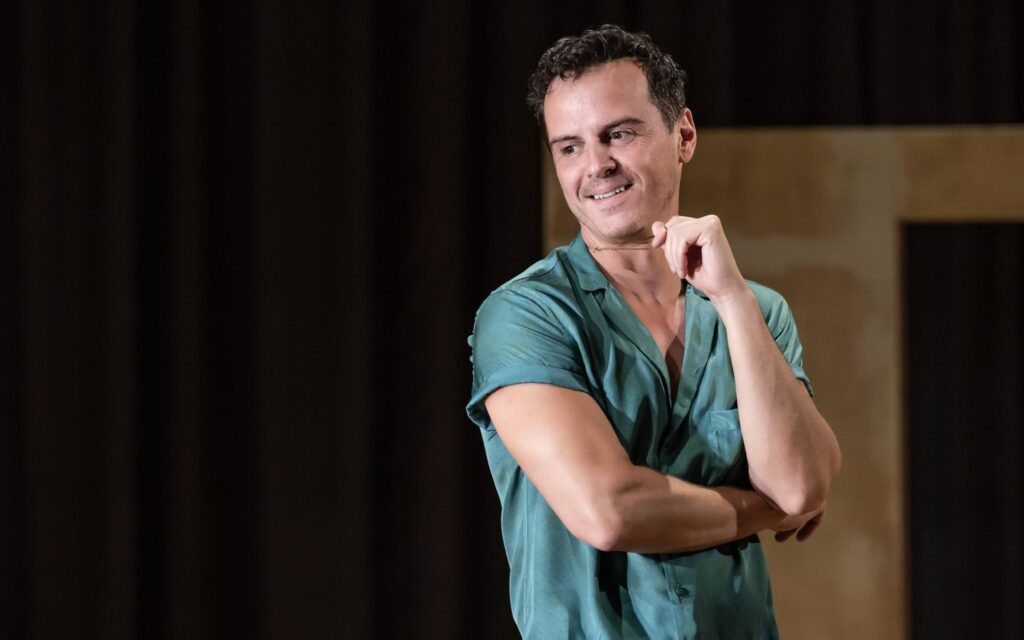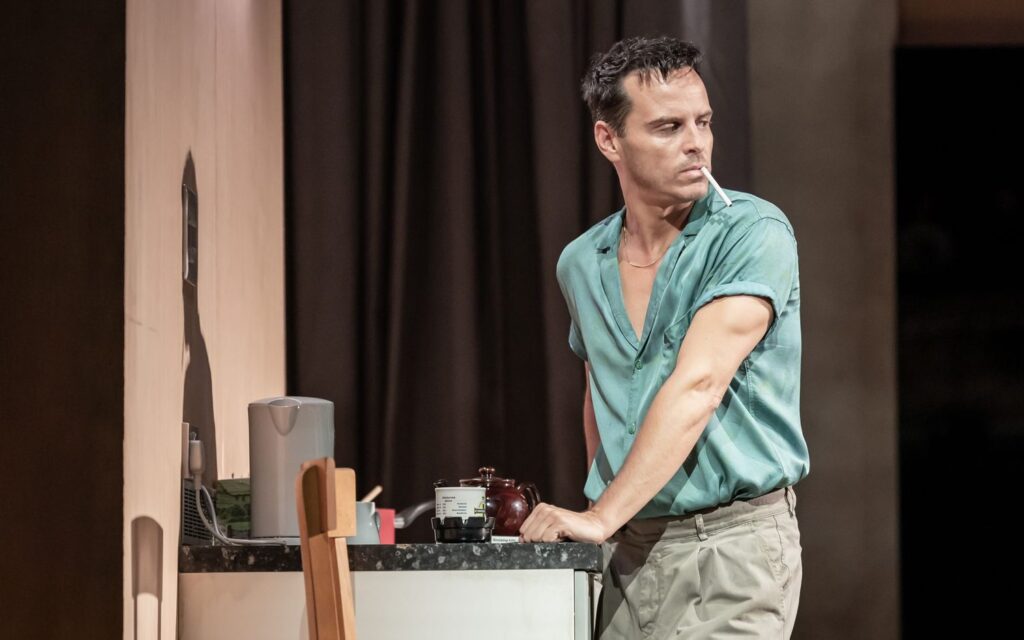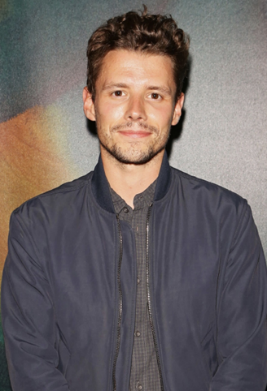Delve into the world of National Theatre Live’s ‘Vanya’ with director Sam Yates as he shares insights into Andrew Scott’s mesmerizing performance and the unique experience of bringing the play to cinemas.
In the realm of theatre, few experiences rival the electrifying connection forged between actor and audience in a one-person show. Andrew Scott’s portrayal of multiple characters in the “radical” adaptation of Anton Chekhov‘s Uncle Vanya, brought to life by National Theatre Live (NT Live), stands as a testament to this captivating form of storytelling. To delve deeper into the intricacies of this production, we sat down with co-creator of the production, and director of the NT: Live performance, Sam Yates, to gain insights into Scott’s mesmerizing performance and the unique experience of bringing ‘Vanya’ to cinemas through NT Live.
What can audiences expect from Scott’s performance in this “radical” adaptation of Checkhov’s Uncle Vanya?
Yates: Andrew plays eight characters in this production and imbues each of them with detail, distinction, heart and soul. It is a mesmerizing feat that brings audiences close to each character and immerses them in the story.
When approaching the show, how did you want to portray the play’s central ideas and themes?
Yates: The central theme that spoke to me was that of time, of what constitutes a satisfying or valuable spending of time in our brief moment on planet earth. So, in that sense we put the act of storytelling central to this story, a storyteller takes to the stage in a room full of other humans and we look at ourselves through Chekhov’s characters in Simon Stephens’ humane and hilarious adaptation.

Did you always have Andrew Scott in mind to take on the mammoth task of the show? What was it like working with Scott on the production?
Yates: It was always Andrew – the show was co-created with him, alongside myself, Simon Stephens and designer Rosanna Vize. Andrew and I worked closely for about a year before rehearsal. We were closely linked by WhatsApp voice messages where we’d let our imaginations loose and wander through the themes, characters and possibilities of the play.
How did you react to the play’s reception by both critics and audiences?
Yates: We have been genuinely moved by audiences’ responses which continue to come in each day, and now it’s not at stage door after the show but actors also engage with the world on social media. The piece seems to move people on a deep level, perhaps because the audience are invited to be active participants in the imaginative act.
The Picture of Dorian Gray is currently running on the West End and Prima Facie recently finished, both of which are one-performer shows. What is it that you think makes this style of show unique for audiences?
Yates: I think one-person shows put a strong and exciting focus on the actor. They have the potential to bond an audience and a performer in a very powerful and direct way. It is also an inherently theatrical device – an ancient device – of a storyteller arriving to tell us a story and take us on a journey.

For those who missed out on seeing the production in the West End, how will the NT Live screening enhance the production in cinemas?
Yates: I directed the NT Live production of VANYA and worked very hard to bring as much of the theatre experience to cinemas. Audiences are able to get closer to Andrew’s performance and can enjoy the best seat in the house for the entire show.

Read our full review of Vanya, now playing in select cinemas worldwide.
More About Sam Yates
He was featured as a Screen International Star of Tomorrow and a rising star in The Observer. His productions have been nominated for Olivier Awards Best Actress in a Supporting Role for Murder Ballad, and Outstanding Achievement in an Affiliate Theatre for The Phlebotomist.

He recently completed his feature film debut Magpie starring Daisy Ridley and Shazad Latif.
Theatre credits include: The Two Character Play by Tennessee Williams (Hampstead Theatre); A Separate Peace by Tom Stoppard (Curtain Call & Platform Presents); Incantata (Irish Rep, New York Times Critics’ Pick, Gate Theatre, Dublin, Galway International Festival & Jen Coppinger); The Starry Messenger (Wyndham’s Theatre, West End); Company (Royal Academy of Music); The Phlebotomist (Hampstead Theatre, Downstairs and transfer to Main Stage, nominated Olivier Award Outstanding Production); Merrily We Roll Along (Royal Academy of Music); Glengarry Glen Ross (Playhouse Theatre, West End, and No.1 UK Tour); Assassins (Royal Academy of Music); Desire Under The Elms (Sheffield Crucible); Murder Ballad (Arts, West End, nominated for three WhatsOnStage Awards and 2017 Olivier Award Best Supporting Actress); Cymbeline (Sam Wanamaker Playhouse, Ian Charleson Award commendation, winner Clarence Derwent Award); East is East (Trafalgar Studios, & 2 UK Tours); The El. Train (Hoxton Hall); Outside Mullingar (Ustinov); Billy Liar (Royal Exchange; winner Best Actor and Best Newcomer at Manchester Theatre Awards); Cornelius (Finborough Theatre, 59E59 New York; nominated four Off West End Awards and Critics’ Pick New York Times); Mixed Marriage (Finborough Theatre); Purgatory by W.B. Yeats (Edinburgh Fringe); Macbeth: The Hour (Edinburgh Fringe).
Film and television: Magpie (2023, feature film debut, written by Tom Bateman, produced by Werewolf Films and Kate Solomon for 55 Films, starring Daisy Ridley, Shazad Latif, Matilda Lutz); Agatha and the Curse of Ishtar (TV Movie, Endemol Shine/Channel 5/PBS); The Hope Rooms with Ciarán Hinds & Andrew Scott (31Productions & BKF, Winner Grand Prize Future Filmmaker Award, RIIFF 2016); Cymbeline with Hayley Atwell, All’s Well That Ends Well with Lindsay Duncan & Ruth Wilson, and Love’s Labour’s Lost with Gemma Arterton & David Dawson (The Complete Walk, Shakespeare’s Globe); and music videos Emeralds and Auld Wives (MTV’s A-List) for Bear’s Den (Communion Music).








